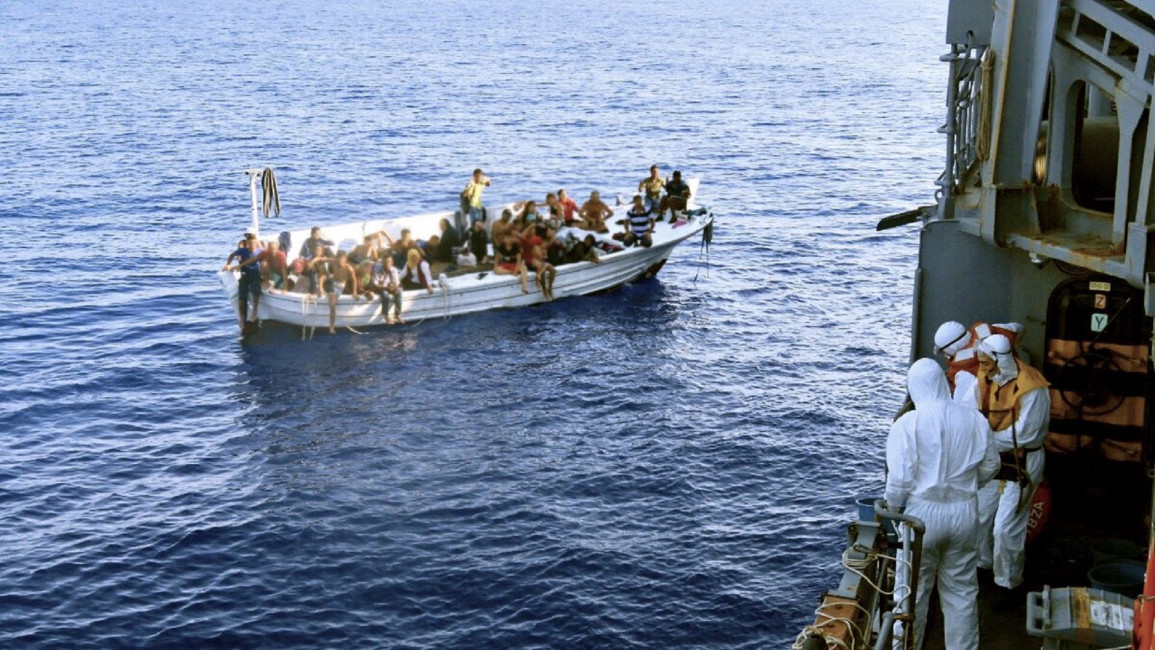Surge in deadly crossings from crisis-hit Lebanon: Save the Children
The number of people attempting to make the deadly sea crossing to Cyprus from Lebanon has surged this year, Save the Children said Wednesday.
"September saw a significant uptick in crossings with 230 people travelling on five boats pushed back to Lebanon after attempting the journey to Cyprus by sea," it said.
Save the Children said 21 crossings had been attempted to Cyprus between July and September, more than the 17 reported for the whole of 2019.
Most of the attempted crossings usually depart from Lebanon's northn coast, in the Tripoli area.
The Republic of Cyprus lies just 160 kilometres (100 miles) away.
According to the army and aid groups, several people have drowned or died of health complications while drifting at sea in recent weeks.
Most of the would-be migrants are already refugees who fled the war in neighbouring Syria but an increasing number of Lebanese nations are attempting the perilous journey.
Lebanon, which hosts nearly 1.5 million Syrian refugees, was struggling from a severe economic crisis and political instability even before the coronavirus pandemic struck.
That was exacerbated by the massive August 4 explosion at Beirut's port, which laid waste to entire neighbourhoods and killed close to 200 people.
Cyprus pushback
Cypriot authorities have summarily pushed back more than 200 migrants and refugees arriving from Lebanon by boat last month, ignoring their claims for asylum and even using violence and coercion, Human Rights Watch reported on Tuesday.
The group accused Cypriot officers of beating and threatening those aboard the boats, while coast guard vessels attempted to swamp migrant boats by circling them at high speed and abandoned at least one boat at sea without food or fuel.
|
"That Lebanese nationals are now joining Syrian refugees on boats to flee Lebanon and seek asylum in the European Union is a mark of the severity of the crisis facing that country," said Bill Frelick, refugee and migrant rights director at Human Rights Watch.
"Cyprus should consider their claims for protection fully and fairly and treat them safely and with dignity instead of disregarding the obligations to rescue boats in distress and not to engage in collective expulsions," he urged.
The accusations arose from interviews HRW conducted with 15 Lebanese and Syrian nationals who had attempted to reach European Union member Cyprus after setting sail from Tripoli, Lebanon, aboard seven boats between 29 August and 7 September.
According to the group, witnesses and victims on two boats returned to Lebanon said that Cyprus marine police handcuffed and beat individuals who resisted being returned.
The watchdog quoted one Lebanese national identified only by his first name who accused Cypriot police of using a cattle prod on him aboard a boat on 6 September after he shouted at them to rescue a couple who jumped overboard.
"People who risk their lives and their children’s lives by fleeing Lebanon by boat do so when they are truly desperate," said Frelick.
"They have a right to have their claims for international protection considered."



